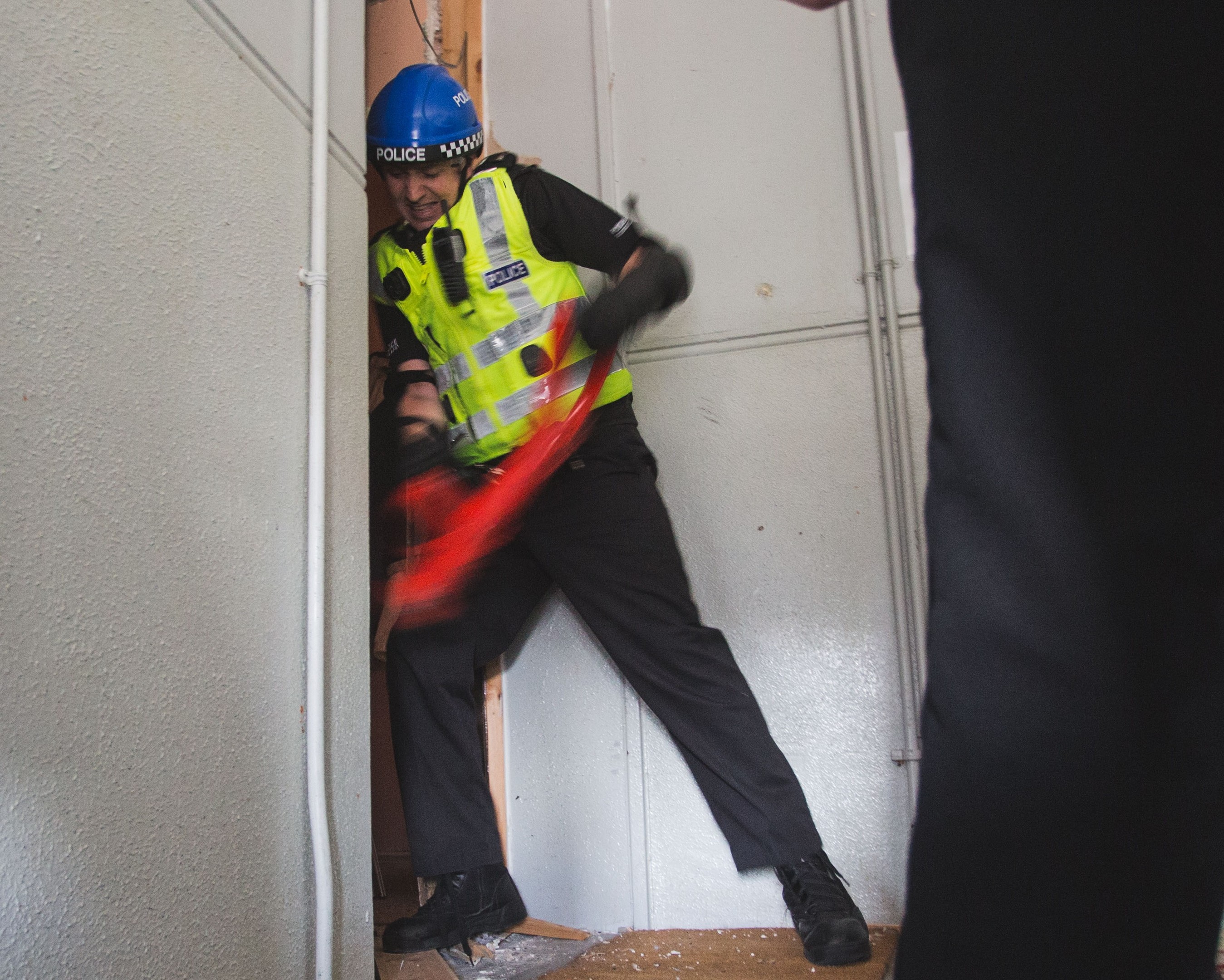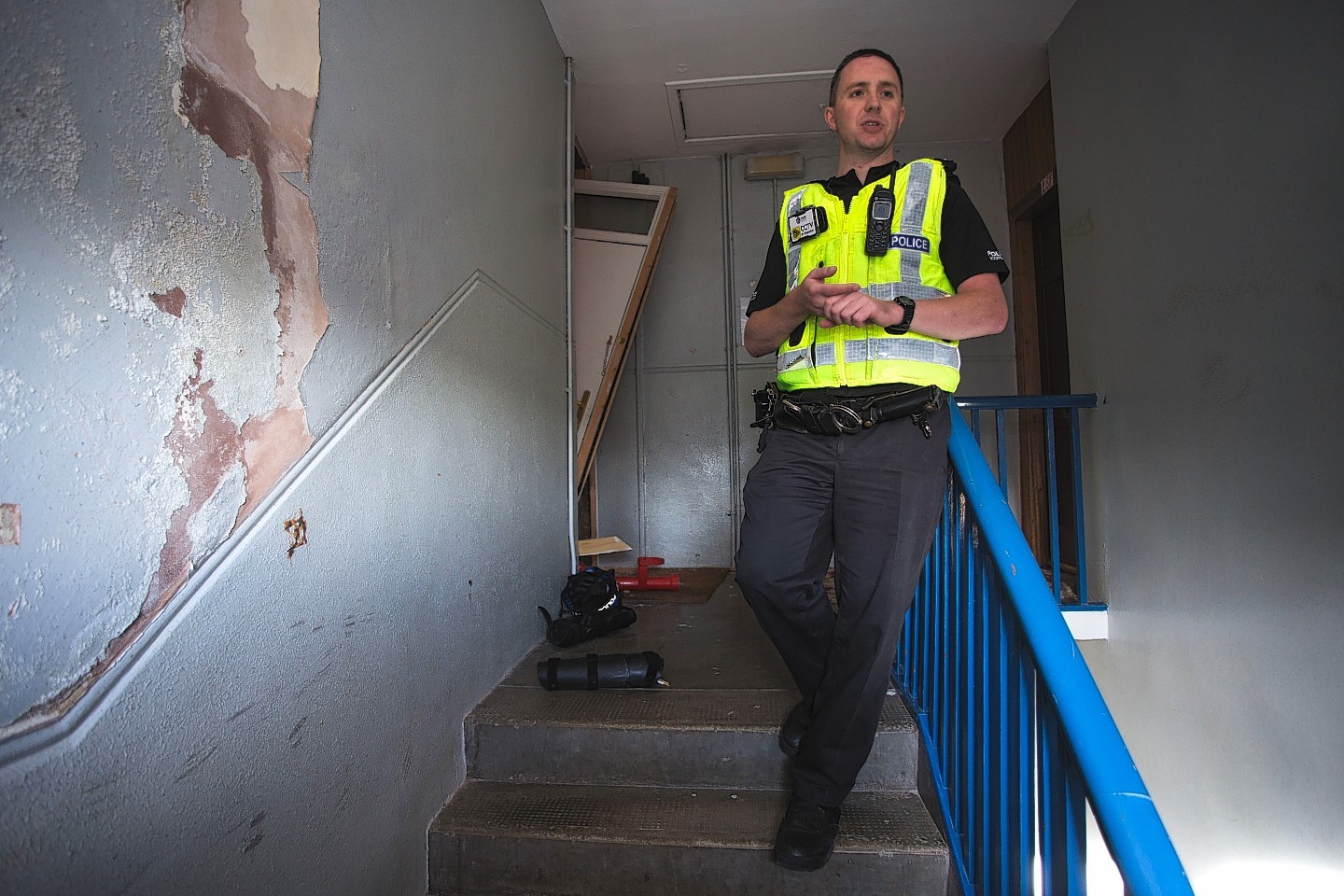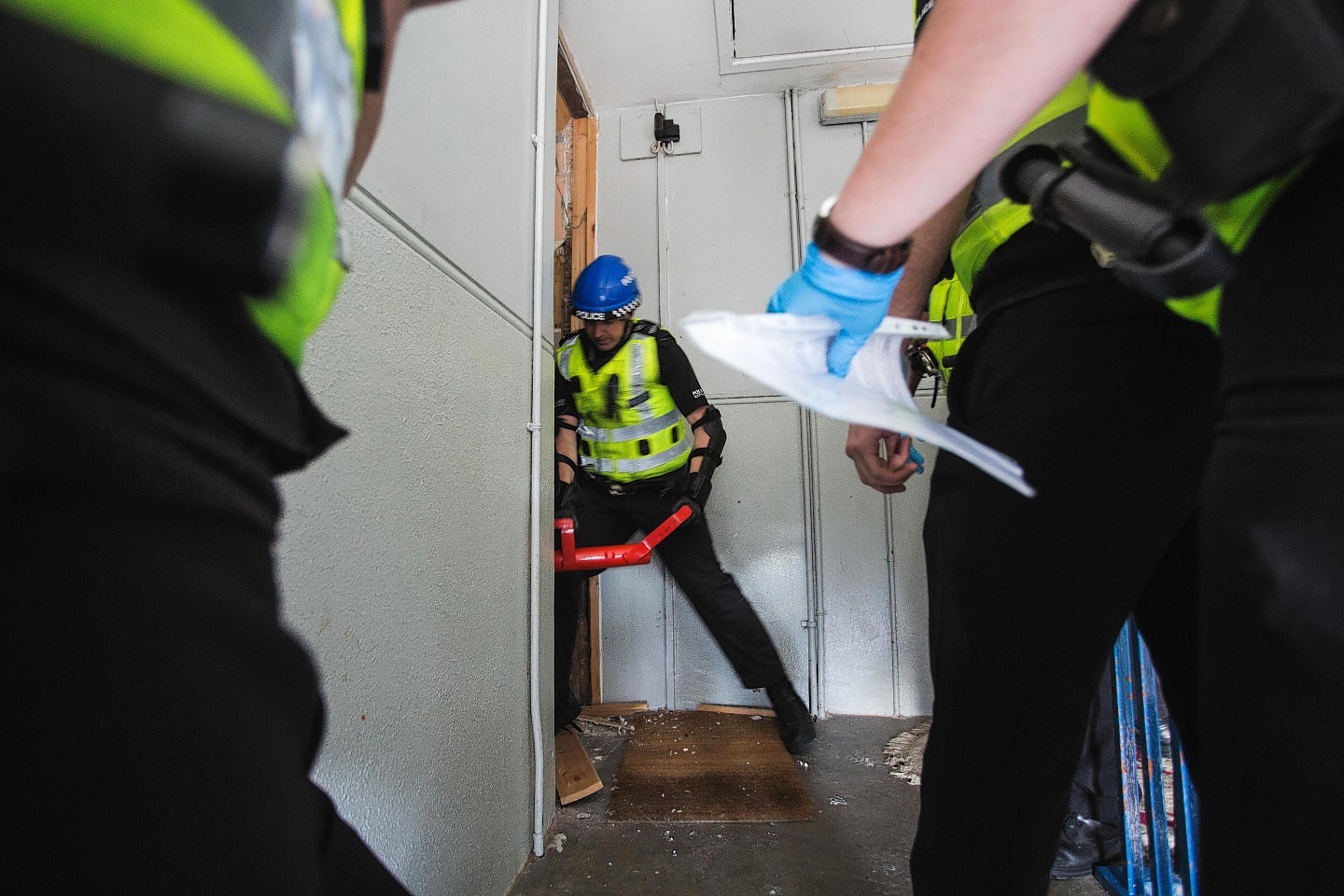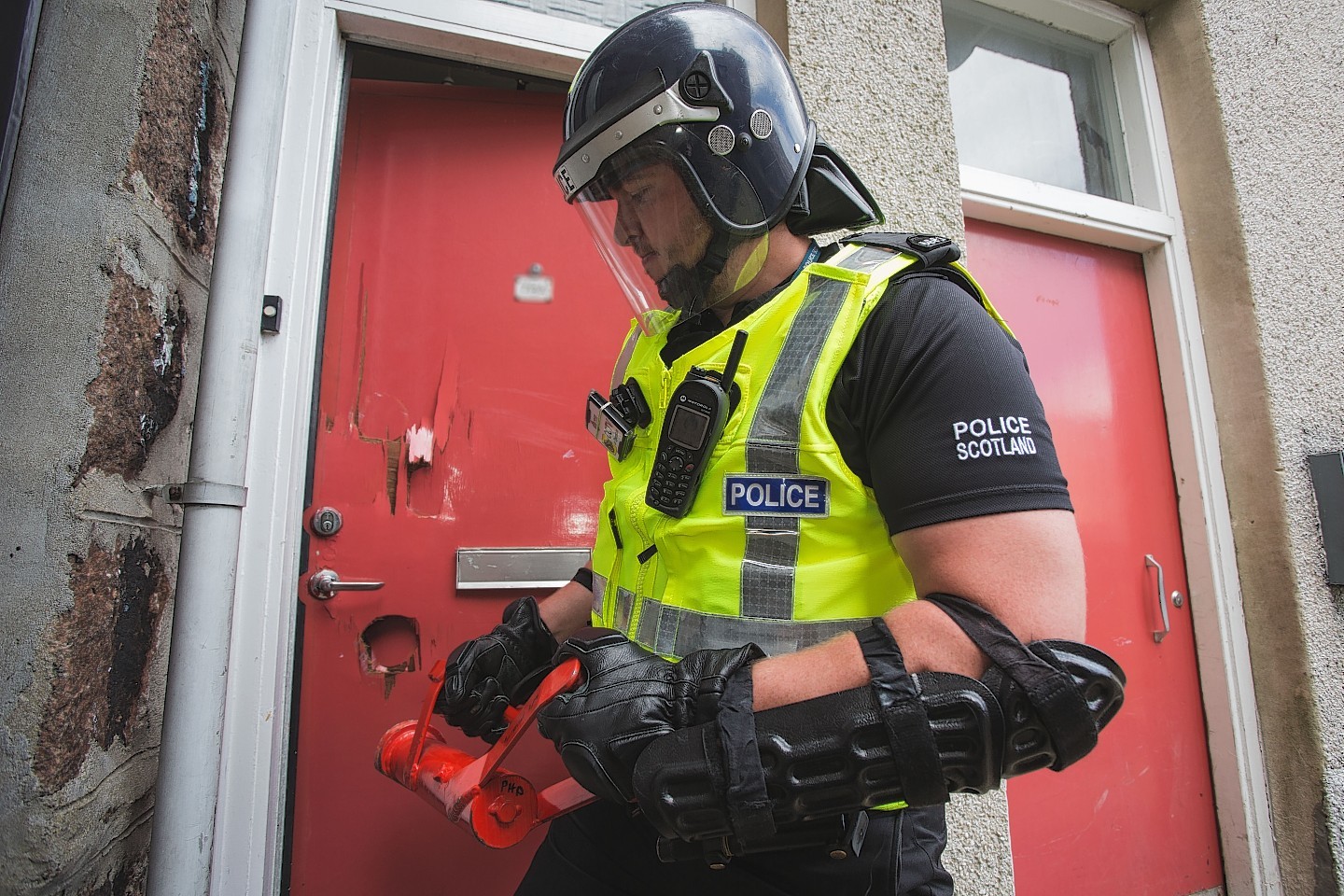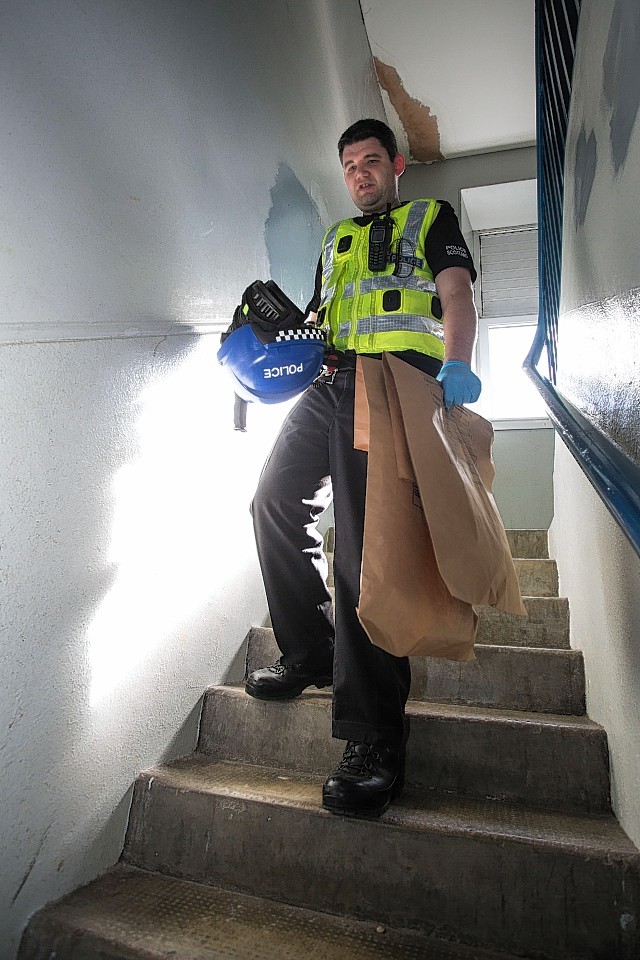Three. Two. One. A police officer tries the door handle. Locked.
A colleague, clad in body armour, sets about battering the wood around the hinges with a steel ram.
Council doors are “notoriously” unforgiving, he confides, and it takes two sturdy officers 90 seconds to break this one down. In the end it is the wooden frame which buckles.
This is how police execute an early morning drugs raid in Peterhead. If the door had been unlocked, the constables could simply have walked in – but drug peddlers are rarely so relaxed about security.
Officers storm through the shattered frame with shouts of “Police!” and the sounds of a rigorous search fill the air.
Another member of the team is in position on the street below to watch for anything thrown from the building.
The target of this raid is not home but nevertheless several hundred pounds worth of what is later confirmed to be the Class B drug cannabis is recovered.
Sergeant George Nixon, our chaperon, explains his team is not just looking for drugs, but also evidence of supply and the “proceeds of crime”.
Before a warrant is executed, a briefing covers in minute detail how the raid will be carried out and what each officer is responsible for. Key details, such as the criminal record of the target – specifically if they are likely to resist arrest – as well as any dangerous pets, are highlighted.
The second swoop of the morning has a very different focus. Although the team is again working from intelligence that drugs are being sold from a flat, there is another factor to consider – children.
When officers obtain intelligence of possible drug dealing in properties in which youngsters are known to live, immediate action is taken.
The officers work with specialists from partner agencies who are able to remove children from the address and away from danger if necessary.
This time the team considers very carefully whether to employ the battering ram and agree it must be a last resort – and only if they are confident no children are in the vicinity.
In the end the ram is used because no one is home. A quantity of cannabis is seized, bagged and removed from the house.
In both cases officers will carry out further inquiries. There will be no let up in their pursuit of drug dealers in the north-east.
Police warning: Nowhere to hide
A senior north-east police officer has issued a stark warning to drug dealers in the region – there is nowhere to hide from the law.
Figures released this summer show that in Peterhead and the wider Buchan area the number of drug offences has risen by almost a third, and the number of people prosecuted for supplying illegal substances has rocketed by 60%.
The total number of supply offences in Peterhead and Buchan between April 2014 and March this year was 49 – up from 29 on the previous 12 months.
Police insist the surge is not down to a boom in the trade of illicit drugs – but evidence that officers are catching more criminals.
As officers launched an offensive across Peterhead earlier this month, Chief Inspector Elaine Logue said tip-offs from the community were crucial to securing victory in the war on drugs.
“The drugs trade has not expanded, drugs are not a bigger problem in the north-east than before – quite the opposite,” she said.
“Our supply of drugs is up and possession is up, which demonstrates we are having success and the intelligence we are acting on is proving to be good intelligence.”
The two warrants executed that day proved successful – hundreds of pounds worth of cannabis was seized from an address in Jamaica Street and another in Queen Street.
A 31-year-old man and a 28-year-old man have since been charged and reported to the procurator fiscal.
Ch Insp Logue said intelligence-led policing relied on local communities for information and support and stressed that officers frequently acted on tip-offs from members of the public.
“The community are out there,” she said.
“They see what activity is going on on their doorstep, on their streets and they can report any activity they find suspicious.”
Anyone with information about the drug trade is urged to contact police on 101 or Crimestoppers on 0800 555 111.
